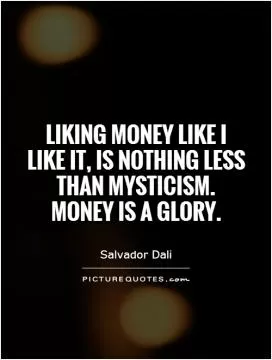Those who do not want to imitate anything, produce nothing

Those who do not want to imitate anything, produce nothing
Salvador Dali, the renowned surrealist artist, was a firm believer in the power of imitation as a means of artistic creation. He famously said, "Those who do not want to imitate anything, produce nothing." This statement encapsulates Dali's philosophy that imitation is not only a necessary component of artistic production but also a vital tool for innovation and creativity.Dali was known for his unique and eccentric style, which often featured dreamlike imagery, distorted figures, and melting clocks. However, despite his avant-garde approach to art, Dali was heavily influenced by the works of the old masters, such as Michelangelo, Velazquez, and Vermeer. He believed that by studying and imitating the techniques of these artists, he could better understand the principles of art and develop his own distinctive style.
In his early career, Dali experimented with various artistic styles, including impressionism, cubism, and futurism. However, it was not until he discovered the works of the surrealist movement that he found his true artistic voice. Surrealism, with its emphasis on the subconscious mind and the irrational, resonated with Dali's own fascination with dreams and the unconscious.
Dali's most famous works, such as "The Persistence of Memory" and "The Elephants," are prime examples of his unique blend of surrealism and classical technique. By imitating the techniques of the old masters and incorporating them into his own surrealistic vision, Dali was able to create works that were both innovative and timeless.
Dali's belief in the power of imitation extended beyond the realm of art. He often imitated the mannerisms and eccentricities of historical figures, such as Napoleon and Freud, in order to create a persona that was larger than life. By imitating these figures, Dali was able to transcend his own limitations and become a symbol of artistic genius and creativity.












 Friendship Quotes
Friendship Quotes Love Quotes
Love Quotes Life Quotes
Life Quotes Funny Quotes
Funny Quotes Motivational Quotes
Motivational Quotes Inspirational Quotes
Inspirational Quotes